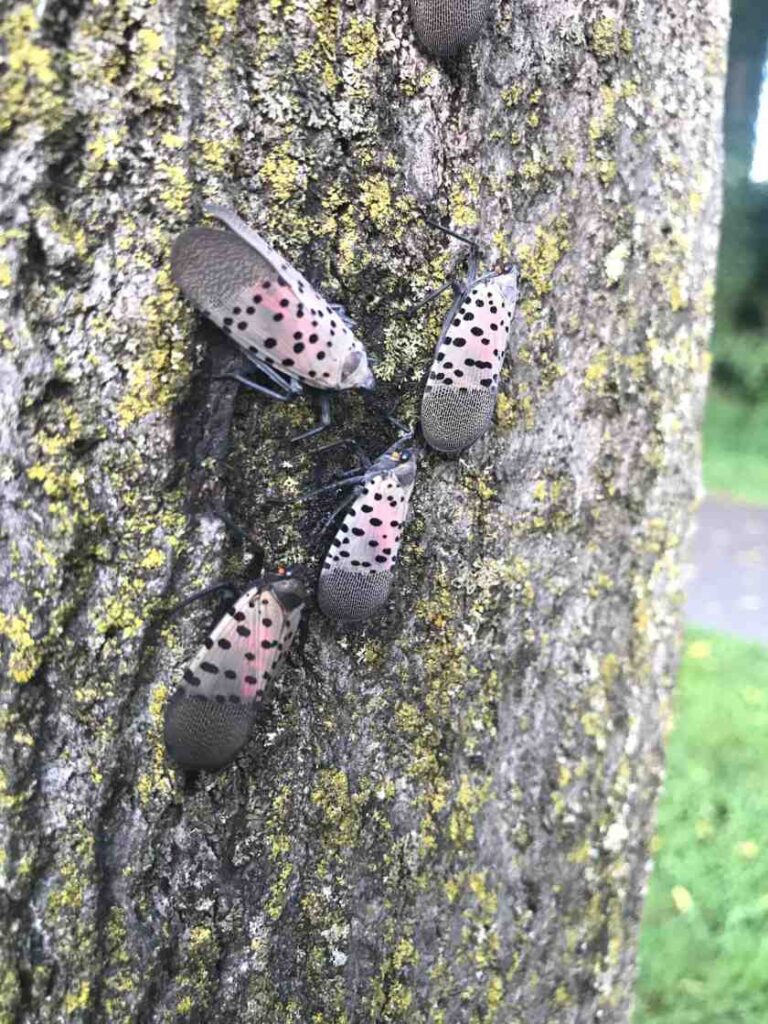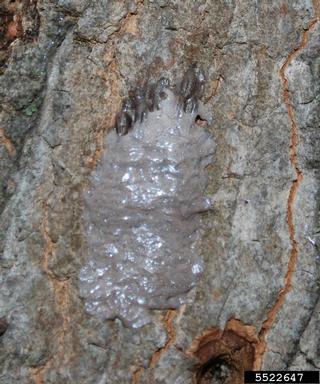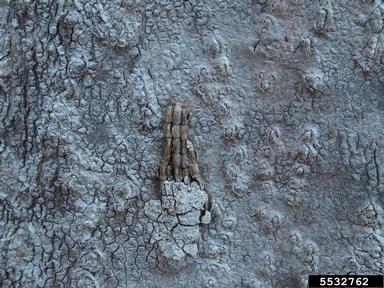A new population of invasive spotted lanternfly (Lycorma delicatula) has been found in Buffalo, New York. More than 100 Spotted Lanternfly (SLF) adults have been discovered in the city since September 9, 2022. While spotted lanternfly has not yet been detected in Canada, Buffalo is 45 km from the Canadian border.

“This destructive agricultural pest attacks a wide range of native hardwood trees, grapevines, and fruit trees and threatens industries, like fruit orchard, beer, wine and grape product industries, so it is a big concern for Canada,” said Sarah Rang, Executive Director of the Invasive Species Centre. SLF is an invasive insect native to parts of Asia that was initially detected in the United States in 2014 in Pennsylvania, eventually spreading to 14 US states. Invasive species are nonnative plants, animals, insects, and pathogens that are introduced to an area and cause harm to the environment, economy, or society. This spotted lanternfly detection is one of an increasing recent number of invasive species pressures facing Ontario.
Canadians can help prevent an infestation by identifying and reporting signs of SLF. Adults are present from July to December and can begin laying one inch long muddy-looking egg masses as early as September on any hard surface outdoors, so check tree trunks, vehicles, patio furniture, firewood, railings, and stone and metal surfaces for egg masses. Adults are often found swarming at the base of trees.


If you observe signs of SLF, report them immediately to the Canadian Food Inspection Agency or to eddmaps.org, the Early Detection and Distribution Mapping System, and include photos of the insect, egg masses, or other signs of infestation. Seal insects or scrape egg masses in a sealable container and either add alcohol or hand sanitizer or place in the freezer and note the precise location of the sighting.
A free Spotted Lanternfly Information Workshop will be held by the Invasive Species Centre in the Niagara region on September 21 and October 5 from 6:00 to 8:00 PM at the Rittenhouse Branch of the Lincoln Pelham Public Library. The workshop is for agricultural and forest industry workers, conservation authorities and municipal staff, students, naturalists, gardeners, and other interested members of the public. Advance registration is required.
